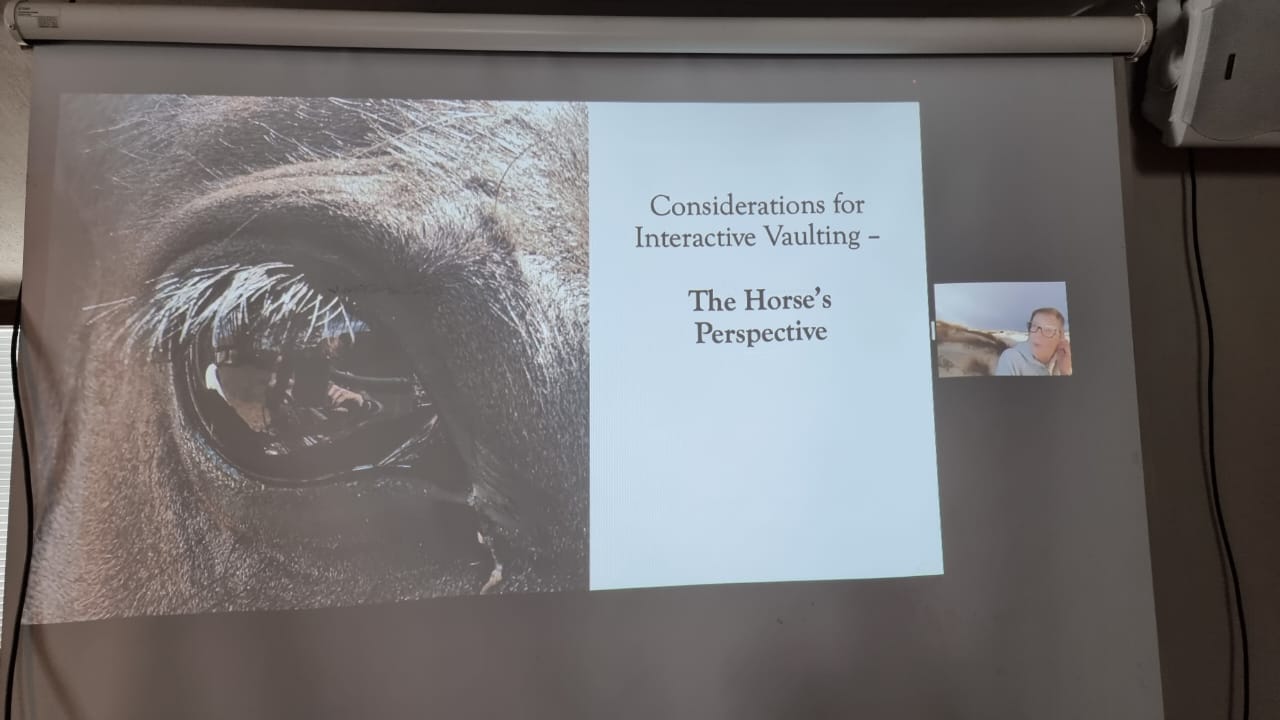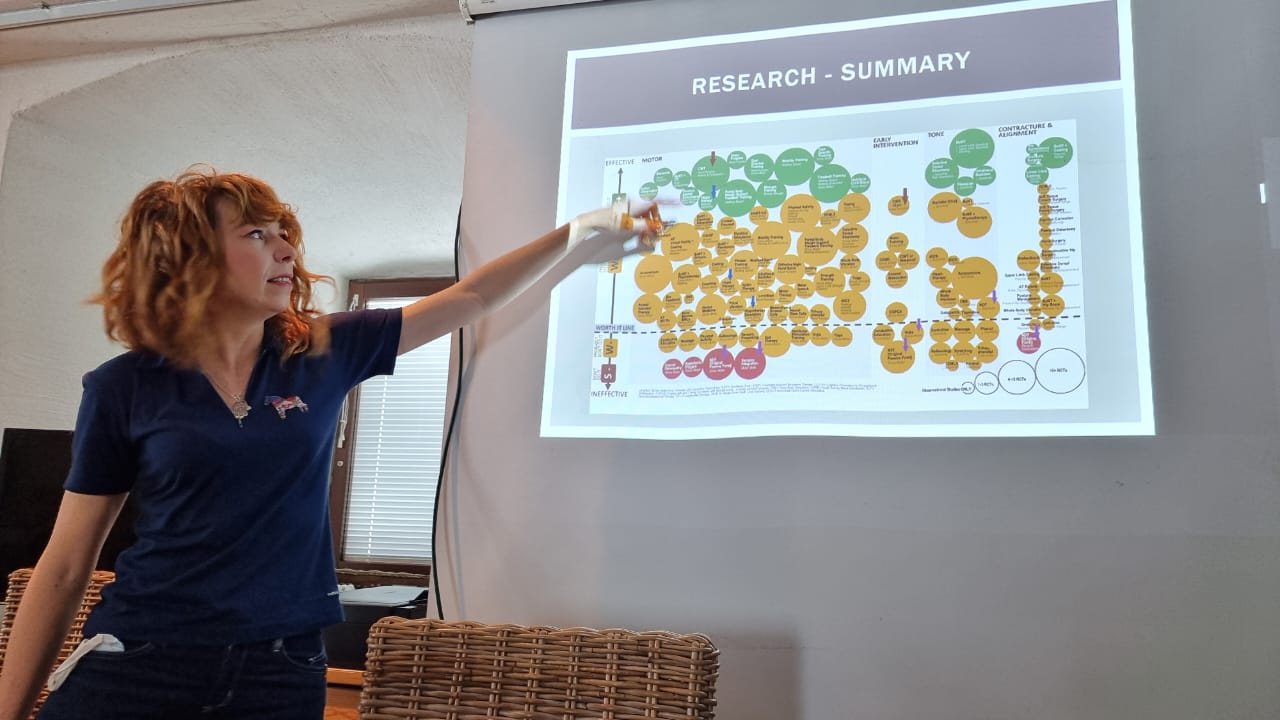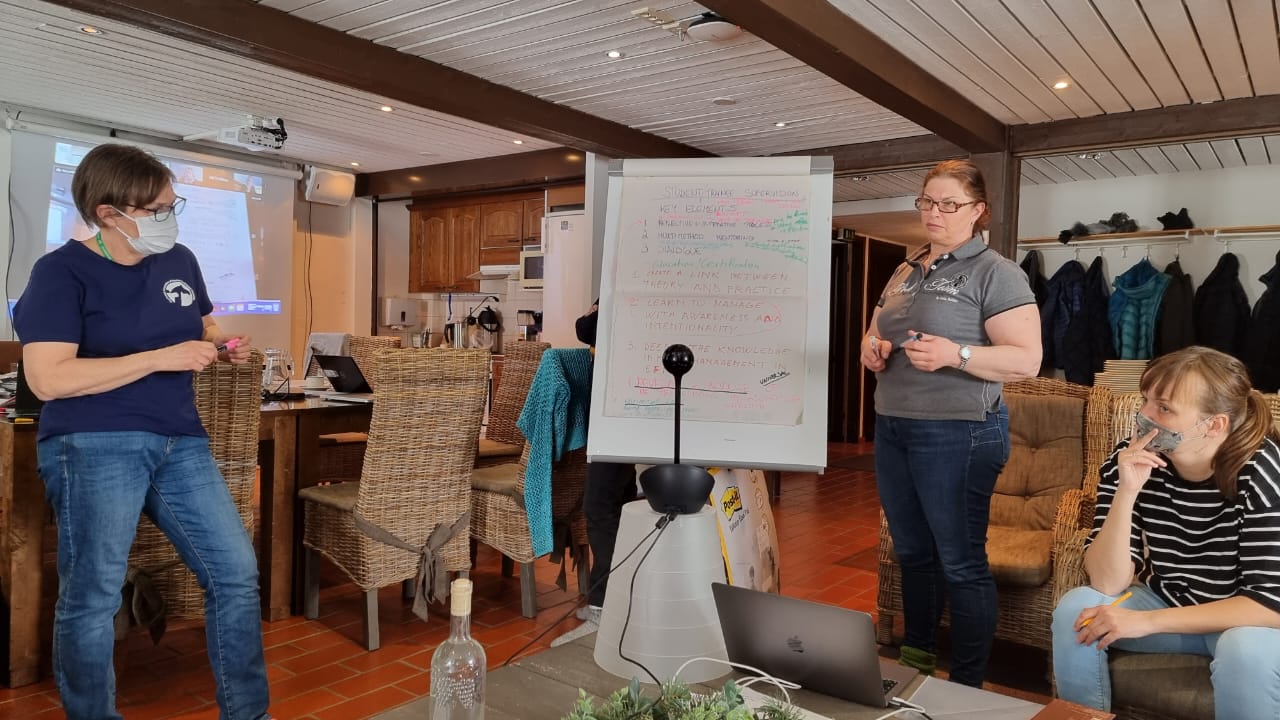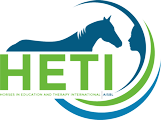Learning Teaching and Training Activities

Learning, Teaching and Training
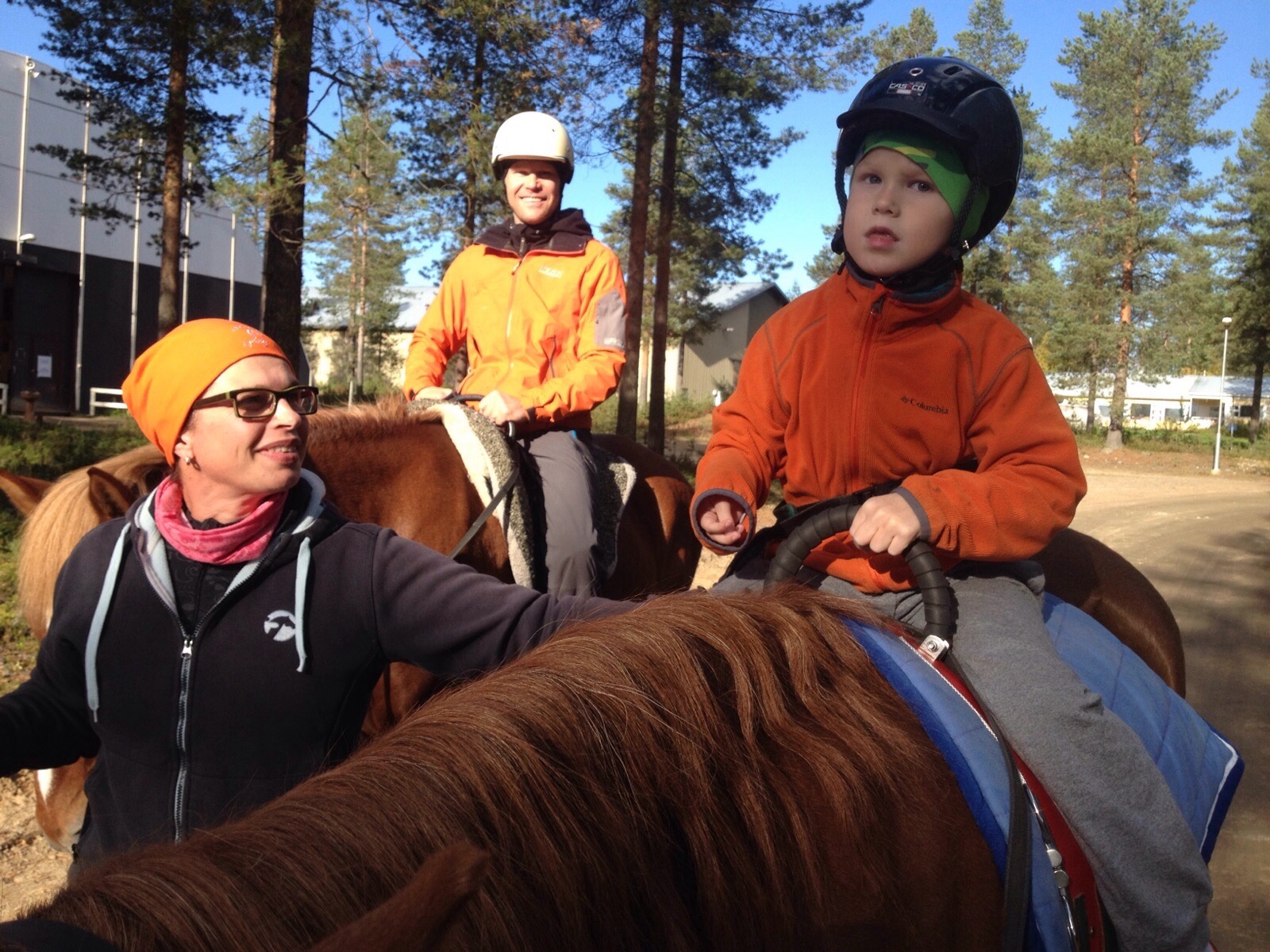
The learning, teaching and training activities carried out in Ypäjä, Finland included the following:
Meeting goals:
- Best practice in Physical and Occupational Therapy and rehabilitation key skills when working with the horse and client
- Evidence based Teaching, Learning and Training
- Further recommendations from partners based on previous needs analysis
Proposed results after the Learning, Teaching and Training Event:
- Training and teaching skills will be enhanced in participants
- Participants knowledge will be increased and diversified
- Participants will develop an understanding of key competences and best practice in EFI education and training
- Participants knowledge in relation to research and practice will increase
The second Learning Teaching Training Event as part of the Erasmus+ project ‘Best Practice in Equine Facilitated Interventions – Education’ took place in person and online at Hevosopisto Oy Equestrian College in Ypäjä, Finland. The overall purpose of this project is to provide an opportunity for European participants to develop an understanding of key competences and best practice in EFI education and Training. Hevosopisto Oy Equestrian College operates in an area of more than 300 hectares, part of which is owned by the Natural Resources Center (LUKE) and Metsähallitus. The Hippolis Center of Expertise, the Finnish Equestrian Museum, LUKE, Ypäjän Hevossairaala Oy and the laboratory Ellab, which specializes in animal samples, operate in the same area and in cooperation with the Equestrian College. The Equestrian College proved to be a comfortable and diverse venue for the Erasmus project partners to carry out their three-day meeting and training.
While onsite, the partners had the opportunity to explore the vast facilities available at the equestrian college, including the mares and foals stable where they learnt about Finnhorses. They visited all indoor arenas from which one is designed for dressage and others for jumping and driving. The oldest one is made of wood. In one of the many stables, the participants got to see the horses that are worked with in Finnish Equine Facilitated Therapy Education.
Unfortunately due to some COVID-19 difficulties, a number of participants were unable to attend in person. This meant the event had be change into a hybrid event at quite short notice. The Finnish group in conjunction with the HETI office, arranged for the meeting to be on zoom as well as in person. This enabled each organisation to still be able to discuss the presentations and share their learning despite being many miles away from each other.
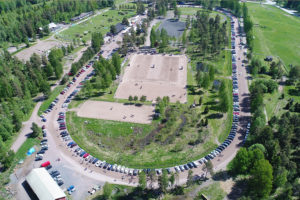
Image: Overview of Equestrian College
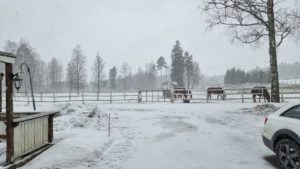
Image: Snow covered Equestrian College
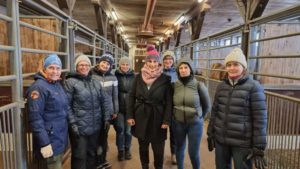
Image: Project partners exporing the Finnish Stables.
Project partners arrived in Finland on 3rd April and were taken to the Equestrian College by bus. The partners were also staying onsite for the duration of the meeting.
The first morning covered Trainee supervision on EFI education. Each project partner presented this topic in relation to their own organisations and then discussed ‘How are these lectures integrated into the partner curriculum?’ ‘How do we integrate gaps people may identify?’ and ‘Suggestions of moving forward’. From this information, the group collated information on supervisor-trainee key elements and the qualifications of supervisors.
After a lunch break, Jill Carey of Festina Lente, Bray, Ireland, presented online giving an Overview of Equine Assisted Learning Model, the theoretical frameworks used and the research behind this. Again, the project partners discussed this at an organisational level and gave feedback to the group.
Following a short break, the group heard presentations from Anna Pysac of Poland, Lorrie Renker of HETI and Elena Rondi of Italy who explored Best practice in riding/therapy in groups. Following organisational discussions, the group collaborated on the key elements for teaching a group. This ended day one of interesting and informative discussion.
Day two began with a lecture from Timo Ilomäki of the Equine College in Finland who presented about online learning platforms. Following this, there were lectures on Best practice through experience in physical therapy and rehabilitation key skills when working with horses and clients and the evidence for this. These presentations were given by Meike Raupach of Italy, Ewa Polanska of Poland and Sanna Mattila-Rautiainen of Finland. Following the group discussions and lunch, a learning cafe was held where participants could discuss what the key elements of the lectures were, as well as their similarities and differences. After a short break, Anne Rokka, of Finland, and Anna Pasquinelli, of Italy, explored the comparison of Education and training curricula and the collected general results from the scheme to compare this.
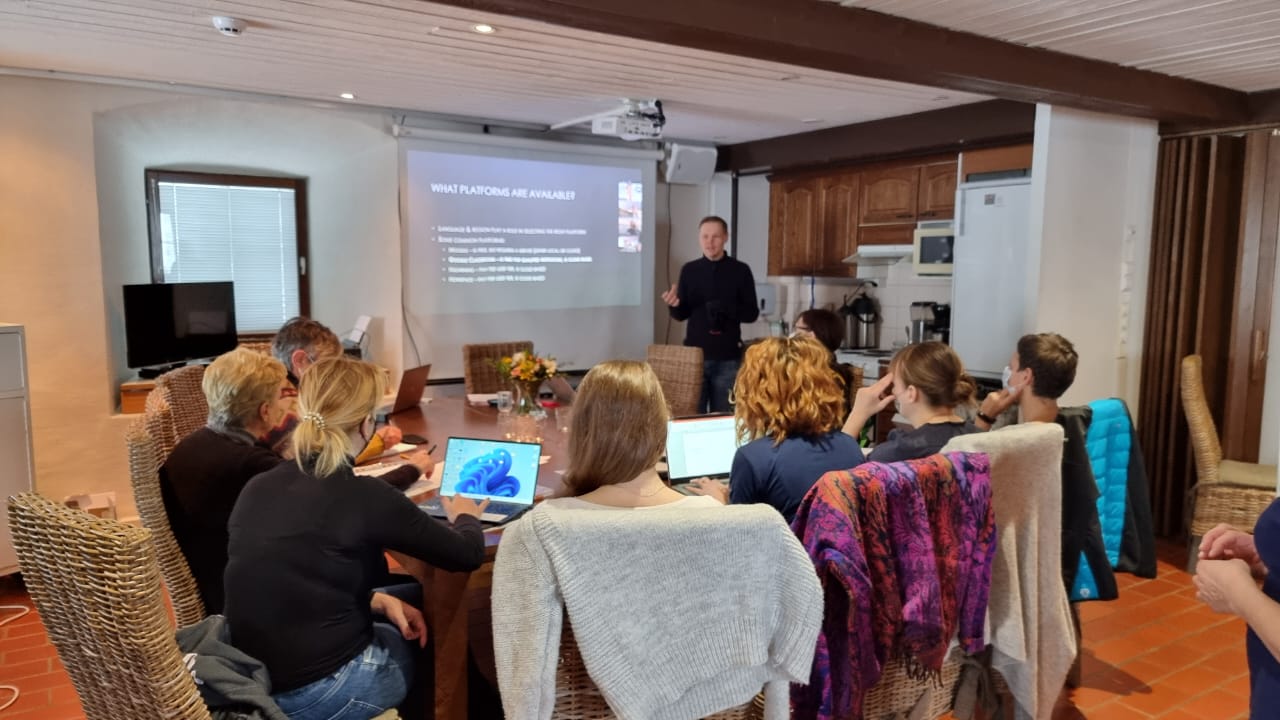
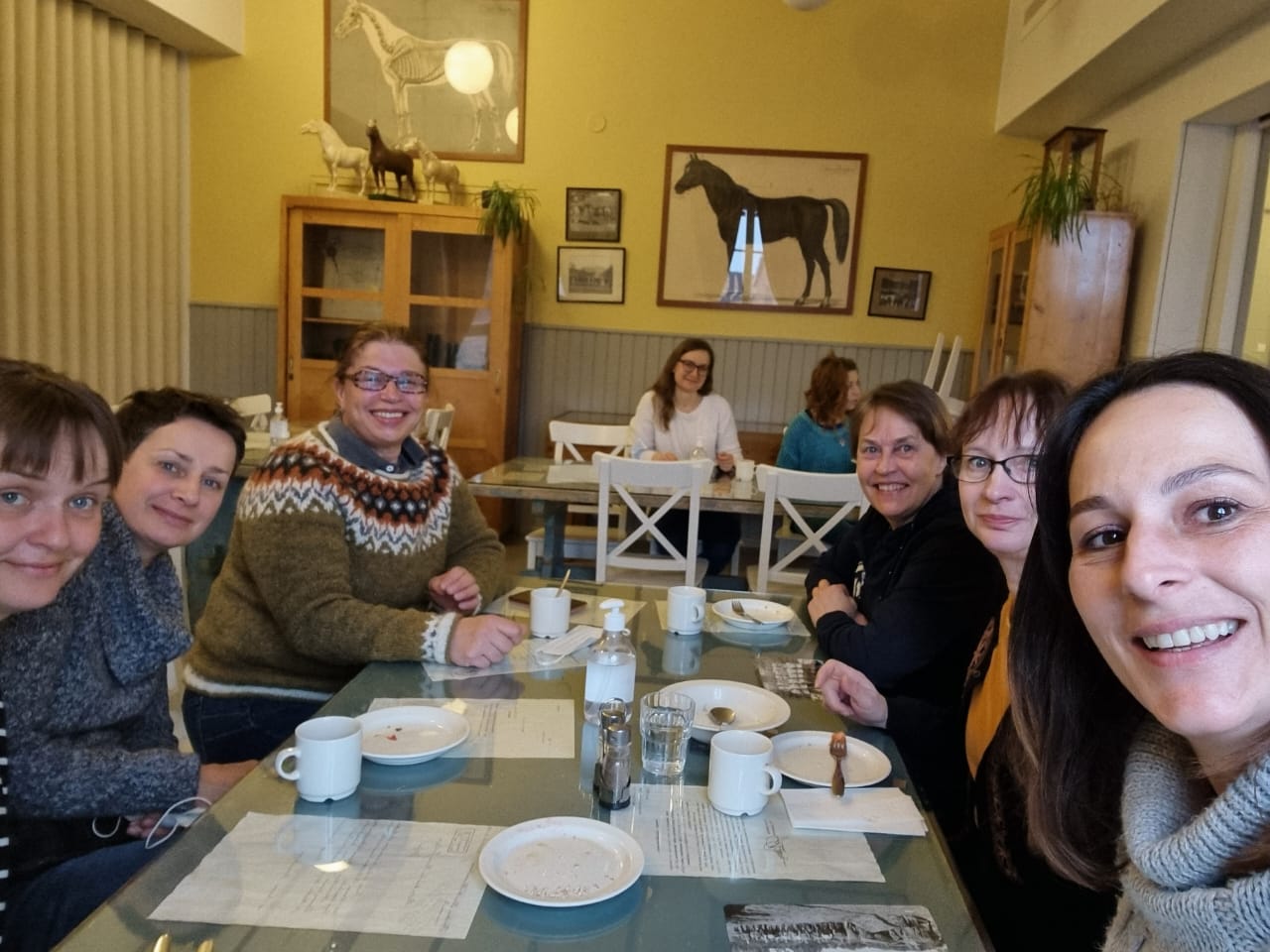
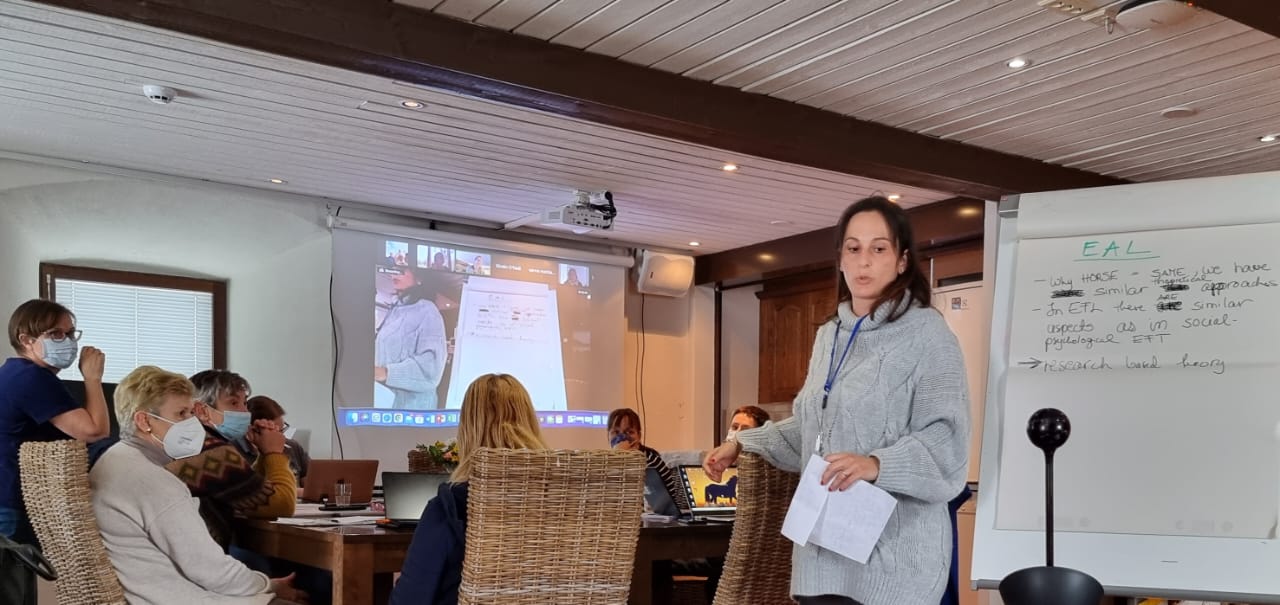
Image 1: Project partners listening to Timo Ilomäki’s presentation on Online learning platforms.
Image 2 :Project Partners enjoying a well earned break
Image 3: HETI Vice President, Alexandra Stergiou (Greece), sharing HETI’s discussion feedback
The final day began with a look at the HETI Ethical Guidelines from Alexandra Stergiou of HETI and how these guidelines can apply to the Finnish Curricula by Heta Rautiainen. This was then discussed by the project participants in groups and feedback was given. Following lunch, Gisela Heimsath-Rhodes, HETI, gave a presentation of vaulting theory from the horse’s perspective. Again, this was discussed at an organisational level and then feedback was given.
Finally, the group wrapped up the learning of LTT2 by compiling a short report of the key elements of the different topics discussed throughout the 3 days. This report will be used in the final Transnational meeting in Ireland in July to explore if the initial learning outcomes for the project have been met.
Overall, this was a very successful Learning, Teaching and Training event. Not only did participants get to engage with further learning around best practices in Education and training but they also got to experience delicious Finnish food, play in the snow and they also got to partake in Finnish traditional sauna habits and engaged in some cultural exchanges where participants learned Greek traditional dances.
